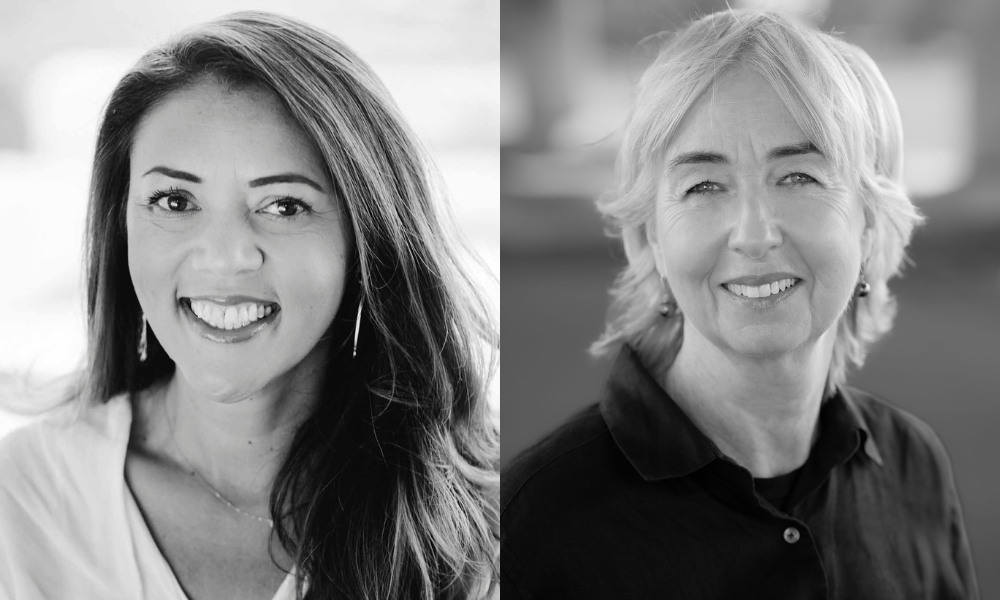
Warner Brothers uses 'Square One' program to encourage Māori and Pacifica applicants

A story of commitment to diversity is unfolding in New Zealand's film and television production industry. It serves as a reminder that when passion and purpose align, transformation can occur not only within an organisation but throughout an entire industry.
The journey began in the offices at Warner Bros International Television Production ( WBITVP) with a simple statement from then managing director, Greg Heathcote: “I can train anyone to be a producer,” he said.
“If you can train anyone, why don’t we give Māori and Pacifica a go?” Farah Jacobs, head of commercial development and relationships at WBITVP, and fervent advocate of diversity and inclusion, replied.
In agreement with Jacobs, Heathcote gave the green light, and with the enthusiastic backing of Co-MD’s Mike Molloy & Emma White, Jacobs and Kari Hall, Head of Culture & Wellbeing at WBITVP, proceeded with the initiative.
For Jacobs and Hall, this small action set the stage for an innovative project aimed at not only reshaping diversity within their organisation but also to bring change to an industry that is predominantly European.
“It is a traditionally white industry, and we just wanted to make the company a little more representative of the country we live in, and that’s why we targeted Māori and Pacifica,” said Jacobs.
As of 30 June 2022, New Zealand’s estimated Māori ethnic population was 892,200 (17.4 percent of national population), according to StatsNZ.
In purporting to be a New Zealand production company that tells New Zealand stories, said Hall, “we weren’t particularly well represented with people who have the lived experience to be able to tell those Pacifica and Māori stories.”
WBITVP forged a partnership with the Tāmaki Jobs and Skills Hub, a support service catering to the residents of Tāmaki, a region with a significant Māori and Pacifica population. They approached the hub with an offer to hire interns, but Tāmaki Regeneration initially mistook the email for spam.
“They have a job and skills hub,” said Jacobs, “but the typical employment is supermarkets, factory workers, or trades, so when they got an opportunity from Warner Brothers, they were like ‘What, is this real?’”
The partnership’s primary goal was to identify young people of Māori and Pasifica descent who expressed an interest in pursuing careers in the television industry. The venture was successful in providing production exposure to three young apprentices.
“What we realised through this process is that the industry’s lack of diversity wasn’t because there wasn’t interest; it was because many individuals from underrepresented communities didn’t even know these opportunities existed,” said Jacobs.
The traditional pathway into film and television in New Zealand is through two private institutions that are challenging to access for Māori and Pacifica.
“[It’s about] how can we give opportunities to people who could be as worthy and as interested in getting in and having a career and film and television, but just haven't got the means to do that?” said Hall.
Fast forward to mid-2022, and the initiative has evolved into a more robust program, now known as “Square One,” that serves as a stepping stone into WBITVP and the television industry.
It encompasses a comprehensive two-day workshop, a five-week paid apprenticeship with WBITVP for a select group of workshop attendees and ensures ongoing connectivity and access to information about upcoming employment opportunities.
“We wanted to give these young talents a glimpse into the world of television production, even if they hadn't initially considered it as a career option. It was about breaking down barriers and opening doors that were previously closed,” said Hall.
“I think one of the things we’re really, really pleased about is out of the 14 Māori and Pacifica we had on the Square One program, eight have secured semi-regular contracts within the industry,” said Hall.
Thanks to the successful pilot program, the pair are eager to expand and share their knowledge. They’re in the process of sharing their program blueprint with other Warner Bros offices and organisations interested in promoting diversity.